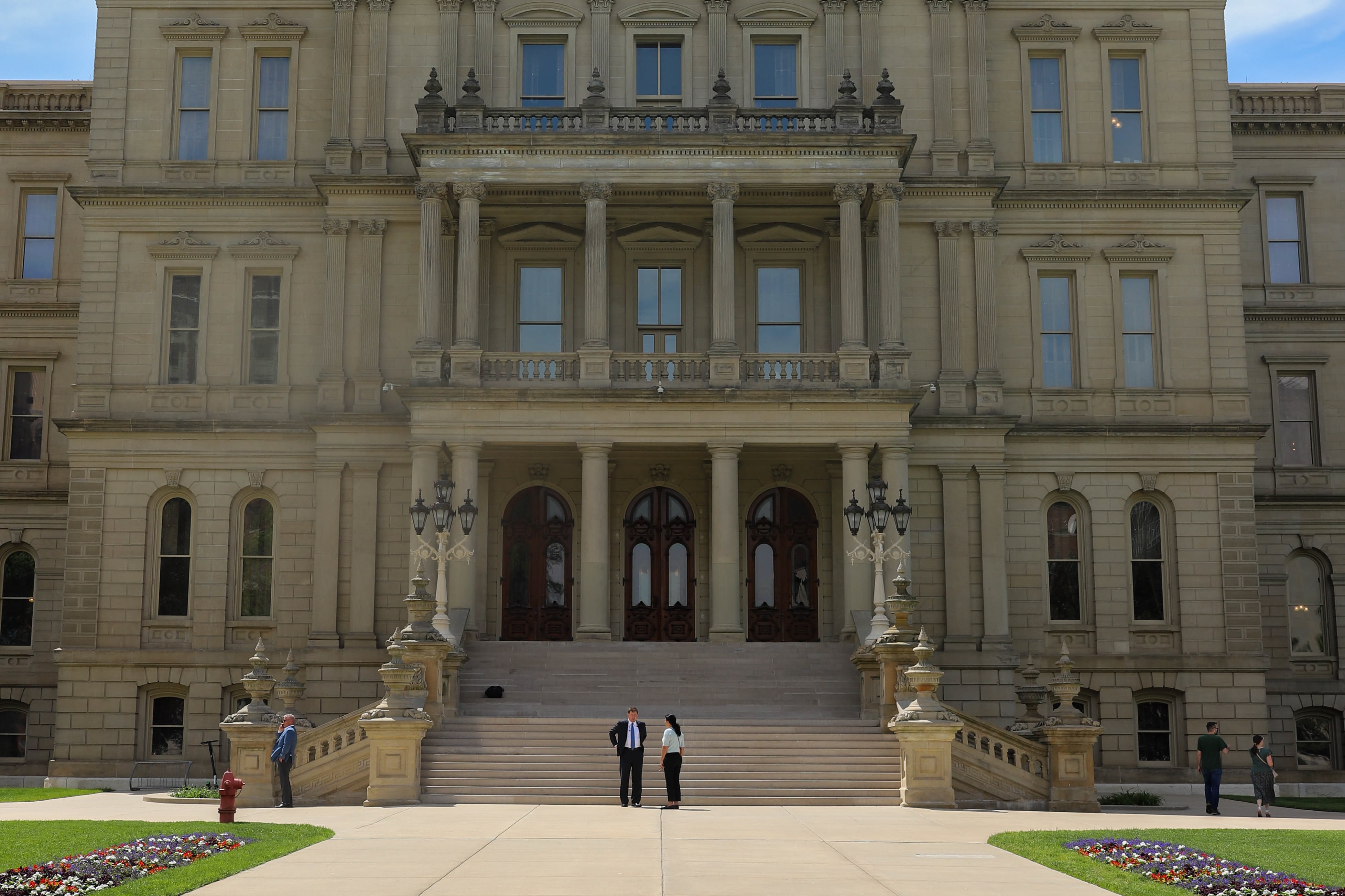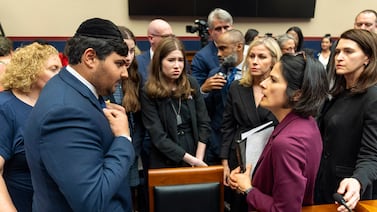The State Board of Education this week made a statement calling for more transparency and oversight for Michigan’s charter schools.
The resolution, introduced by Democratic Board Member Mitchell Robinson during Tuesday’s meeting, asks the legislature to pass bills that would make the Michigan Department of Education oversee approval of new and expanding charters, only allow nonprofit organizations to manage charters, and mandate that charters comply with the same transparency laws that traditional public schools do.
“While the original notion of charter schools as laboratories of innovation came from teachers unions, that purpose has now largely been lost to predatory for-profit charter organizations … and politically motivated special interest groups,” said Robinson during the meeting.
The board voted along party lines 6-1 in favor of the resolution. Tom McMillin, a Republican, was the only vote against it. Nikki Snyder, the only other Republican on the board, left the meeting earlier in the day after her resolutions on public safety failed.
McMillan said those who want to impose more restrictions on charter schools “don’t want parents to have choices.”
“What this will do is simply force charter schools to not open,” he said.
What does the resolution recommend?
The board’s resolution asks lawmakers to enact bills that would do the following:
- Make the MDE the entity that approves or denies applications of new and expanding charters in consultation with local districts.
- Only allow nonprofit charter management organizations in the state.
- Make charter management firms have complete financial transparency and publish expenditure reports online for the public.
- Mandate that charters and their management organizations comply with open meetings laws and the Freedom of Information Act.
- Require the entities adhere to the same contract bidding laws and regulations that community districts schools do.
- Prevent charters from excluding students based on behavior, academic performance, disability, proficiency in speaking English, family status, or living situation.
- Prohibit charters from refusing transfer students during the school year if there is available space.
- Strongly encouraged charter teachers to have certification instead of short-term permits, or work to become fully certified.
What is Michigan’s history with charter schools?
Charter schools, also known in the state as public school academies, were created about 30 years ago. Those in favor of the new alternative to traditional public schools said at the time the schools could offer families more choices, with better academic achievement for students. Other supporters said the competition would force long struggling districts to improve academic outcomes.
Since then, the topic of school choice has become a political flashpoint in Michigan and across the U.S.
There are currently 285 charter districts with 363 schools in the state, accounting for about a third of all of Michigan’s local education agencies. Those schools served around 149,000 students in the 2023-24 school year, or about 10.7% of Michigan students.
Most of the state’s charters operate in cities. Nearly half of Detroit students attend charters.
Charters are publicly funded but usually rely on management companies to oversee day-to-day operations. Those companies are not held to the same transparency laws as school districts.
More than 80% of charters in the state are managed by for-profit companies that either handle all of the functions of the school or perform individual functions such as payroll and hiring, or budgeting.
Charter schools collected around $1.5 billion in funding from the state this school year.
In Michigan, community colleges, intermediate school districts, universities, and local traditional districts can authorize charter schools. Authorizers can collect up to 3% of state funding given to their charter schools.
Other states have stricter criteria for charter authorization. For example, in Nevada, authorizers are required to submit applications to the state department of education. In Indiana, authorizers are accountable for student academic achievement and must submit annual reports to the state.
Ellen Lipton, a Democratic board member, said that because of its system, Michigan is among the states with the least amount of oversight of charters.
“The governing structure for charter schools in Michigan created really perverse incentives,” she said. “It was really designed to look like there was going to be oversight, but I think intentionally to not have oversight.”
There are still questions about whether charters produce better academic results in students, and how they affect the greater school system. Some studies have indicated that charter school students show more growth than students in traditional public schools in reading and math assessments. One prominently cited report says charters added 16 days of learning in reading and six days in math. But, the “days of learning” metric used in that report is controversial among researchers who say looking at the same results by performance percentile shows not much difference between charter and traditional public school students.
Detroit charters tend to perform better academically than traditional public schools in the city, but the gains are minimal and still well below state averages.
One 2023 study found DPSCD enrolls a higher percentage of students from families living in poverty than charters in the city do. Those enrollment differences can complicate comparisons between traditional districts and charters.
In December 2022, the board passed another resolution calling for laws that would require financial transparency for charters in the state.
The move came after the board learned that only 12 of 166 charter schools responded to Freedom of Information Act requests sent by the MDE. The same request was sent to 112 traditional public school districts, all of which responded.
The board had voted in June 2021 to ask the MDE to send the requests to determine whether charters are held to the same transparency standards as other public school districts.
A package of charter reform bills was introduced by Sen. Dayna Polehanki, a Democrat from Livonia, in March 2022, but failed to move forward in the legislature.
In October, a bill was introduced by Rep. Matt Koleszar, a Democrat from Plymouth, that would require the entities that run charters to make public the average salaries of new and veteran teachers as well as support staff. The bill was referred to the House Education Committee in October.
Hannah Dellinger covers K-12 education and state education policy for Chalkbeat Detroit. You can reach her at hdellinger@chalkbeat.org.






